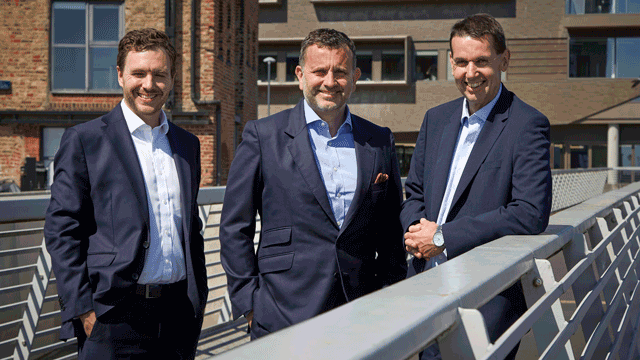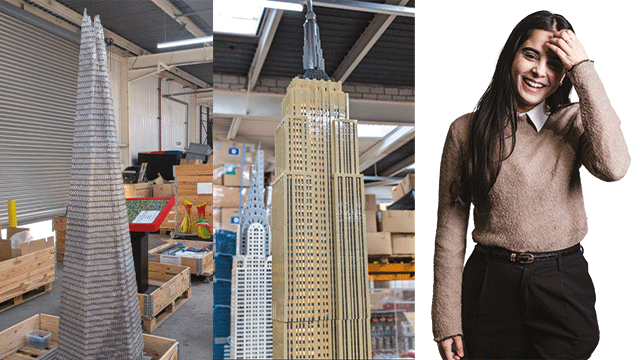The volume of transactions in Europe’s logistics property market rose to a staggering €3bn in the first quarter of the year, reflecting a 111% increase on the same period in 2012, according to figures from Jones Lang LaSalle.
This rise tends to confirm that investor appetite for this segment of the property market has increased significantly.
Admittedly, the first quarter’s turnover was heavily influenced by one large deal, namely one executed by logistics property specialist Prologis and Norges Bank Investment Management (NBIM) which manages the oil-rich Norwegian government’s pension fund. The two launched a 50:50 joint venture into which a €2.4bn logistics portfolio owned by Prologis has been transferred.
The 195-property portfolio, comprising 4.5m m2 of space, will be used to seed the enterprise that the JV is aiming to grow through strategic acquisition, said Prologis. The company will act as exclusive asset and property manager for the JV’s portfolio, which includes assets in Poland, Spain and Hungary.
However, taking the transaction volume of the Prologis and NBIM joint venture in the first quarter of the year, €1.2bn, away from the Q1 European logistics volume, €3bn, leaves €1.8bn, which is still 11% above the entire European logistics property market’s five-year average for the period, according to JLL’s associate director European capital markets Tom Waite.
However, the logistics market had been active in the preceding quarter, Q4 2012.
Among the headline deals during that period was US investor Blackstone’s acquisition of the Prologis Arrow Portfolio in France for over €200m as well as two Polish Panattoni portfolios for €130m, while Rockspring purchased the Paris Oise logistics park for €78m.
Portfolio transactions
Nevertheless, the transaction volume in the first quarter of 2013 was driven by a number of portfolio transactions, states JLL. According to the firm’s Tom Waite, the logistics sector has drawn interest from a mixed pool of investors such as US companies Blackstone and Hines, European investors such as Tristan Capital Partners and German open-ended funds. Waite expects that those investors will continue to buy the sector.
Investors’ appetite for the logistics market has risen in part as a result of healthy income returns and stable cash flow that are characteristic of the sector. The prime European yield remained stable for the third consecutive quarter in Q1 2013 at 7.5%, JLL research reveals.
“Logistics brings attractive yields,” says Jeff Lefleur from US REIT WP Carey. His strategy is to move away from the core market in which demand from investors is very strong, putting yields under pressure. “We are trying to find a balance between core logistics and the more challenging locations to achieve a yield that justifies the risk-price balance,” Lefleur said.
Logistics’ market share has increased over the past year. “Ten years back, the logistics market share was 5% to 6% and increased to 8% in 2010-11. It has now gone back a bit to 7.5%,” says JLL’s associate director, EMEA logistics and industrial research, Alexandra Tornow.
Factors behind the rising market share are changes in the supply chain, which has been affected by the growth of the online sector.
“Changes in the supply chain have made logistics more important. Companies have started increasingly to outsource their logistics business to professionals,” says Goodman’s Emmanuel van der Stichele, fund director of the Goodman European Logistics Fund GELF.
The boost in volume is also connected to the rising tide of online retail that affects the logistics market. According to Gazeley’s executive director, Nigel Godfrey, the development of online retail was expected to affect the market a long time ago. “What we have seen is the sudden emergence of the internet sector,” he said.
Goodman’s managing director for continental Europe, Philippe Van der Beken, identifies two new trends in the market: properties are now becoming obsolete; and sustainability is becoming an essential element for new developments.
Van der Belken believes that a large number of logistics facilities will become obsolete in the near future in places such as Hamburg.
On the other hand, he is convinced that sustainability is becoming more important in the logistics sector. The company is working with the German organisation for sustainability and is also developing facilities in the Czech Republic under the LEED green building programme. “[Sustainability] is a topic we think is very important,” says Goodman’s Van der Beken.
Gazeley also believes in the importance of sustainable development to the logistics sector. The company has recently developed a state-of-the-art 36,000 m2 logistics centre for H&M in the Spanish city Torrejon de Ardoz near Madrid using eco-friendly measures. The building is in the process of being certified by the internationally recognised US Green Building Council for a LEED Silver certificate.
The company has further developments in the pipeline and recently secured a 10 ha plot at the Güterverkehrszentrum in the town of Kassel in Germany’s northern Hesse region. The land provides scope for a logistics project of up to 50,000 m2.
Goodman has developed 1.6m m2 of logistics assets over the past three years and Philippe Van der Beken says that there is “no reason at this point for a significant departure from this track”.
Development projects
Prologis is also planning further development projects; the company has 5m m2 of land with planning permission available for development.
“I do believe that most of what we will see is new development and that there will be speculative development,” said Prologis Europe president Philip Dunne.
This rise in development is driven by the strong take-up over the past two years according to JLL’s Tornow. However, some speculative development is underway in Russia, she adds.
According to JLL, investors are starting to look more seriously at development opportunities, notably of assets dedicated to e-commerce logistics.
In 2013 transaction volumes will be driven by investors’ increasing appetite for large portfolio and platform deals, says JLL.
“Investors have realised that increasing their investment in logistics is difficult if they haven’t got a platform,” says Goodman’s Emmanuel van der Stichele.











